On this day on 21st September
On this day in 46 BC Julius Caesar celebrated first of four triumphal processions in Rome - over Gaul, Egypt, Pontus and Africa with leader of the Gauls, Vercingetorix, led in chains. Caesar began wearing long red boots. As the ancient kings used to wear similar boots, rumours began to spread that Caesar planned to make himself king. Caesar denied these charges but the Roman people, who had a strong dislike of the kingship system, began to worry about the way Caesar was dominating political life.
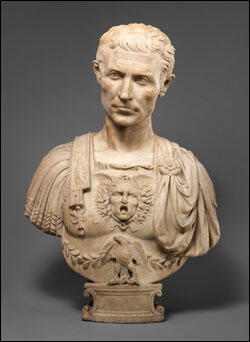
On this day in 1192 King Richard the Lionheart was captured by Leopold V, Duke of Austria. Bishop Hubert Walter immediately began negotiating terms for Richard's release. In March 1193 Bishop Walter left for England carrying letters from the captive king concerning his ransom. Among these letters was the king's command to Queen Eleanor of Aquitaine to have Hubert Walter elected archbishop of Canterbury. When news of Richard's capture reached Philip II of France he suggested to his brother John that they should take advantage of the situation. In January 1193 at Paris the two men signed a peace treaty which involved marrying Philip's sister, Alys. (56) In return, Philip promised to help him gain control of England. This included the attempt to persuade Duke Leopold to sell Richard to Philip for £100,000.
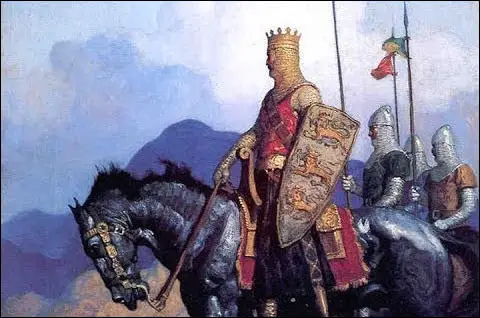
N.C. Wyeth, Richard the Lionheart (1921)
On this day in 1839 Henry George was born in Philadelphia, Pennsylvania. In 1870 George published Our Land and Land Policy. In the book he developed the philosophy and economic ideology known as Georgism. He argued that everyone owns what he or she creates, but that everything found in nature, most importantly land, belongs equally to all humanity. Henry George followed this with Progress and Poverty (1877). In the book he tried to explain the growing gap between rich and poor. "The reason why, in spite of the increase of productive power wages constantly tend to a minimum which will give but a bare living, is that, with increase in productive power, rent tends to even greater increase, thus producing a constant tendency to the forcing down of wages."
In these two books George argued that the gap between the rich and the poor could only be closed by replacing the various taxes levied on labour and capital with a single tax on the value of property. Paul Thompson argues in his book, Socialist, Liberals and Labour (1967) that the book resulted in the growth in socialism: "The real socialist revival was set off by Henry George, the American land reformer, whose English campaign tour of 1882 seemed to kindle the smouldering unease with narrow radicalism. This radical voice from the Far West of America, a land of boundless promise, where, if anywhere, it might seem that freedom and material progress were secure possessions of honest labour, announced grinding poverty, the squalor of congested city life, unemployment, and utter helplessness."
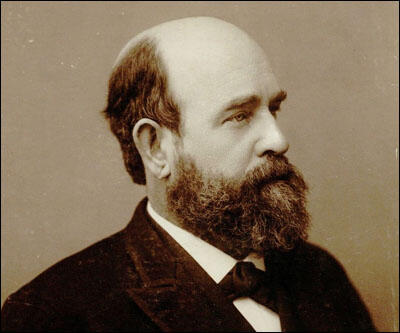
On this day in 1896 the British army led by General Horatio Kitchener occupied Dongola, Sudan. This followed the Battle of Omdurman. Kitchener commanded a force of 8,000 British regulars and a mixed force of 17,000 Sudanese and Egyptian troops. Abdullah al-Taashi, the successor to Muhammad Ahmad, had around 50,000 men at his disposal. The battle began in the early morning. The British artillery opened fire, inflicting severe casualties on the Ansar forces before they even came within range of the Maxim guns. The frontal attack ended quickly, with around 4,000 Ansar casualties. It has been claimed that none of the attackers got closer than 50m to the British trenches. Later that day Kitchener was able to take control of Omdurman.
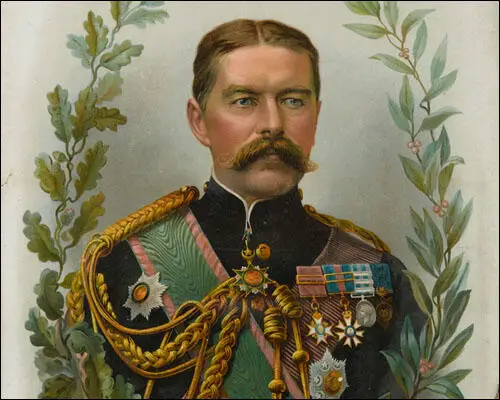
On this day in 1911 the Canadian Prime Minister Wilfrid Laurier loses the election to Robert Borden of the Conservative Party. Bordon had objected to Laurier's plans to strengthen trade links with the USA. During the First World War Laurier supported sending the Canadian Army to the Western Front but opposed Borden's plans for conscription.
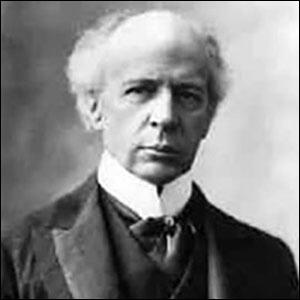
On this day in 1922 US President Warren G. Harding signs a joint resolution of approval to establish a Jewish homeland in Palestine.
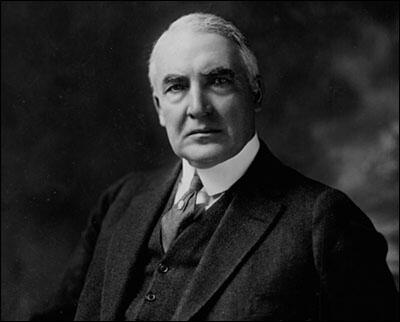
On this day in 1931 Ramsay MacDonald decided to abandon the gold standard. This had happened because of a run on the pound. The Bank of England lost 10 million on 17th and over 16 million on the 18th. The governor of the Bank of England told the government that it had lost most of its original gold and foreign exchange. The pound sterling was allowed to float in the international markets and was to fall by more than a quarter. Therefore, devaluation, which the Labour government had destroyed itself in its resistance to this policy, came four weeks after the formation on the National government. The advice of the Bank of England, which had been taken as absolute gospel, was proved to be worthless. Sidney Webb, the former Secretary of State for the Colonies in MacDonald's government, commented: "Nobody told us we could do this."
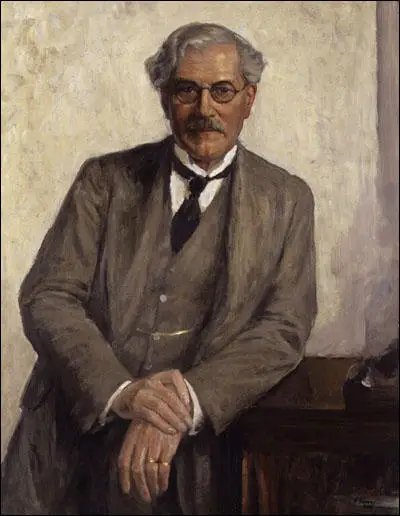
On this day in 1933 the trial against Marinus der Lubbe, Georgi Dimitrov, Ernst Torgler, Blagoi Popov and Vassili Tanev. The men were charged with setting the Reichstag on fire. In court the accused were not only charged with arson, but with attempting to overthrow the government. On 23rd December, 1933, Judge Wilhelm Bürger announced that Marinus van der Lubbe was guilty of "arson and with attempting to overthrow the government". Bürger concluded that the German Communist Party (KPD) had indeed planned the fire in order to start a revolution, but the evidence against Ernst Torgler, Georgi Dimitrov, Blagoi Popov and Vassili Tanev, was insufficient to justify a conviction.
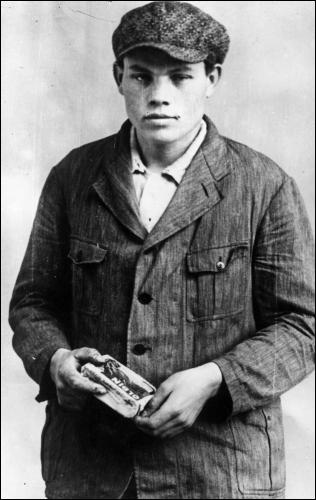
On this day in 1936 Nationalist generals selected Francisco Franco to become chief of state. General Emilio Mola agreed to serve under him and was placed in charge of the Army of the North. Franco now began to remove all his main rivals for the leadership of the Nationalist forces. Some were forced into exile and nothing was done to help rescue José Antonio Primo de Rivera from captivity. However, when José Antonio was shot by the Republicans in November 1936, Franco exploited his death by making him a mythological saint of the fascist movement.
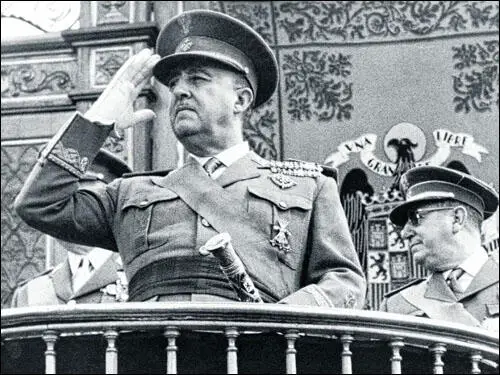
On this day in 1939 Reinhard Heydrich produced a document entitled, Jewish Question in Occupied Territory, that was sent to Security Police Special Units in Poland. It was the first time that the idea of the Final Solution was raised. It included the following: "The first prerequisite for the final objective will be, for one, the concentration of Jews from the countryside into larger cities. This must be carried out expeditiously. Attention must be paid to the requirement that only such cities may be designated as areas of concentration which are either railway junctions or are at least situated on a railway line. One prevailing basic rule will be that Jewish congregations of less than 500 members will be dissolved and moved to the nearest city of concentration."
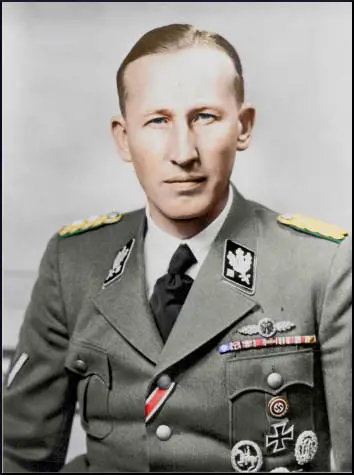
On this day in 1943 Kingsley Wood died. He had been Postmaster-General (1931-35), Minister of Health (1935-38) and in 1938 Neville Chamberlain appointed him Secretary of State for Air. In this post Wood established the Empire Air Training Plan and doubled the strength of the Royal Air Force. In 1940 Winston Churchill appointed Wood as Chancellor of the Exchequer and a member of the War Cabinet. Kingsley Wood was working on his "pay as you earn" tax system when he died.
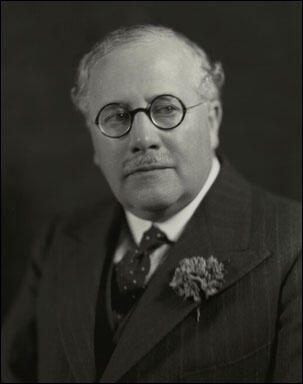
On this day in 1944 the last British paratroopers at Arnhem Bridge surrender after several days of fighting. On 17th September 1944, three divisions of the 1st Allied Airbourne Corps landed in Holland. At the same time the British 30th Corps advanced from the Meuse-Escaut Canal. The bridges at Nijmegen and Eindhoven were taken but a German counterattack created problems at Arnhem. Of the 9,000 Allied troops at Arnhem, only 2,400 were left when they were ordered to withdraw across the Rhine on 25th September.
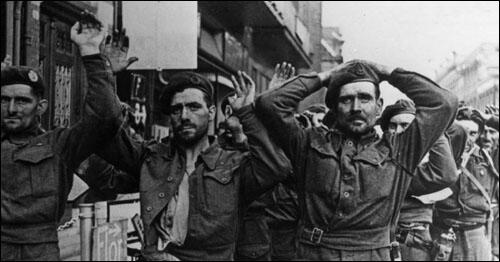
On this day in 1949 Mao Zedong proclaimed the People's Republic of China. During the Second World War Mao's well-organized guerrilla forces were well led by Zhu De and Lin Biao. As soon as the Japanese surrendered, Communist forces began a war against the Nationalists led by Chaing Kai-Shek. The communists gradually gained control of the country and victory came in September 1949.
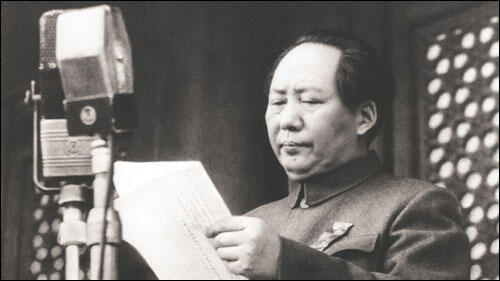
On this day in 1950 George Marshall sworn in as the 3rd Secretary of Defense of the United States and helped organize United States forces in the early stages of the Korean War. In the summer of 1951 Marshall was attacked by Joseph McCarthy, the right-wing senator from Wisconsin, as being soft on communism. In a speech that McCarthy gave on 14th June, he accused the Secretary of Defence of making decisions that "aided the Communist drive for world domination" and implied that he was a traitor to his country. Disillusioned by the smear campaign, Marshall retired from politics. However, Marshall's talents were appreciated abroad and in 1953 he was awarded the Nobel Prize for Peace for his contribution to the recovery of Europe after the Second World War.
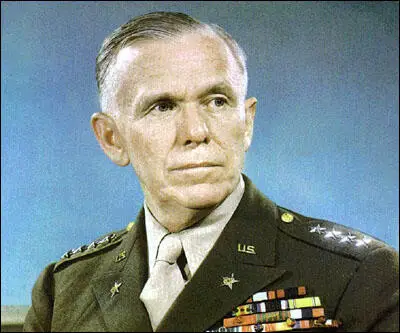
On this day in 1966 Paul Reynaud died. An opponent of appeasement, when Edouard Daladier was ousted in March 1940, Reynaud became the country's new prime minister. A week later he met Neville Chamberlain in London and the men signed a joint declaration that that the two countries would not sign a separate peace with Adolf Hitler. When the German Army invaded France in May 1940, Reynaud responded by appointed Charles De Gaulle to replace Edouard Daladier as minister of war. Reynaud escaped to Vichy France, but Henri-Philippe Petain ordered his arrest. Along with Leon Blum, Edouard Daladier and Paul Reynaud he was tried in February, 1942, for betraying his country. He was eventually handed over to the Germans who held him prisoner until 1945.
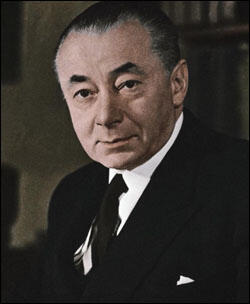
On this day in 1984 the Spartacus Educational book publishers was established.


